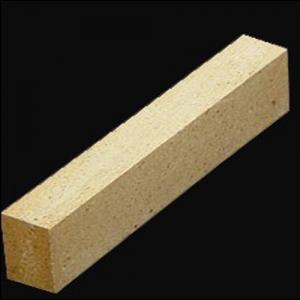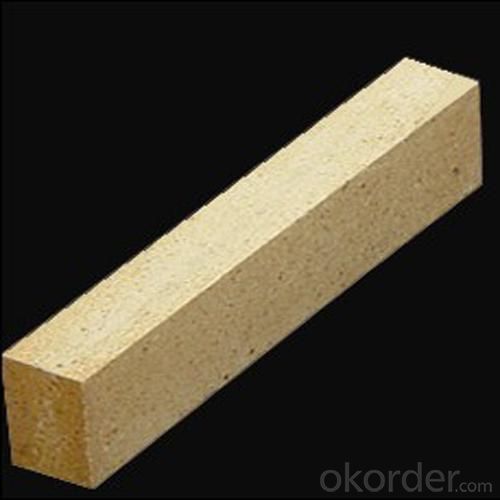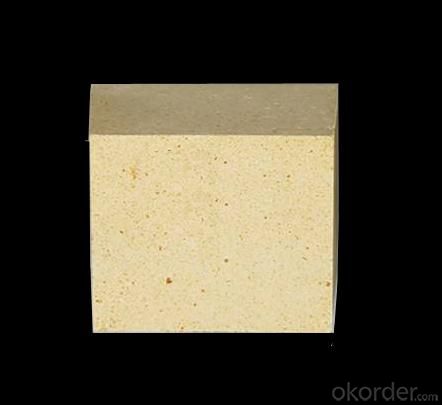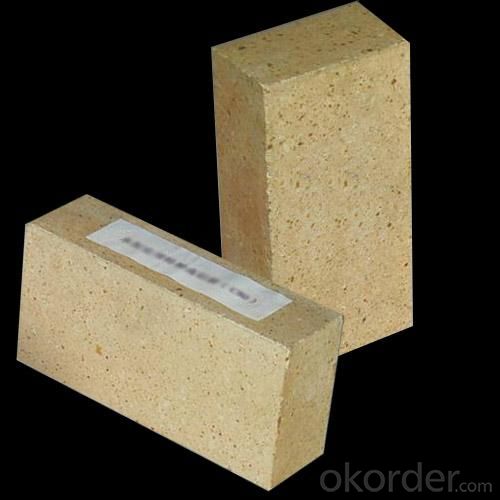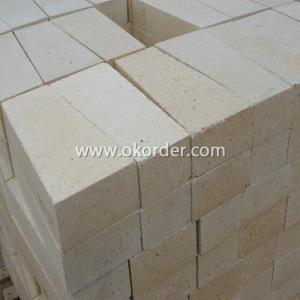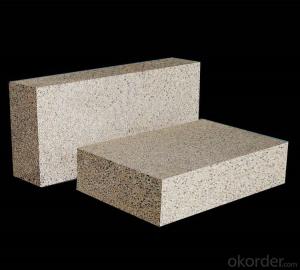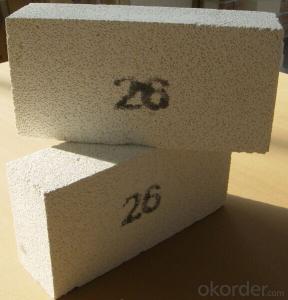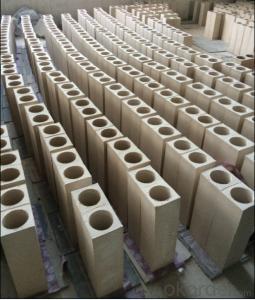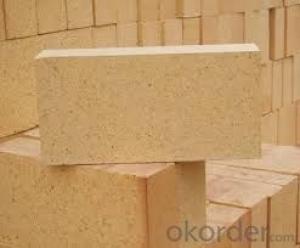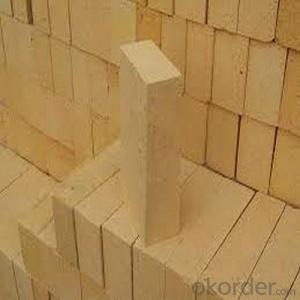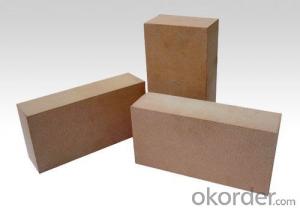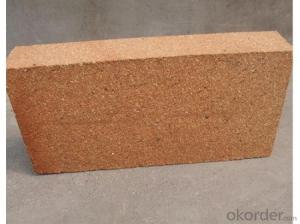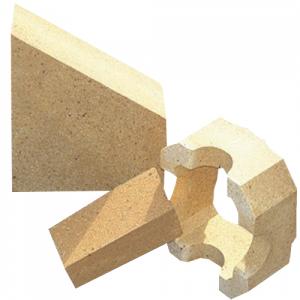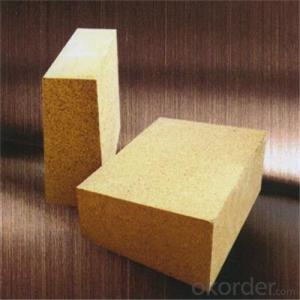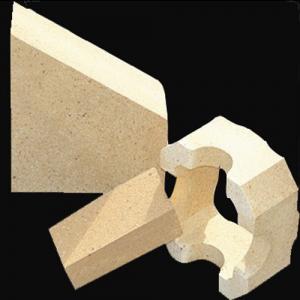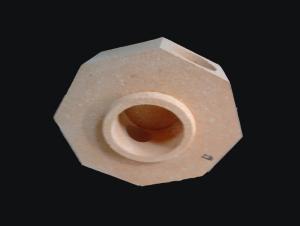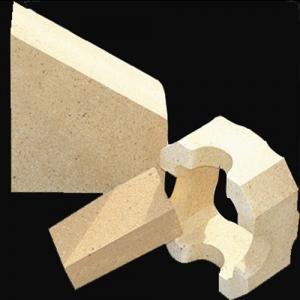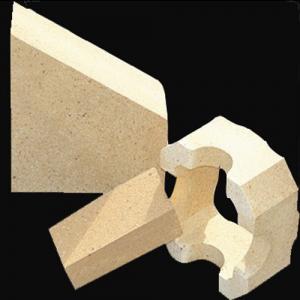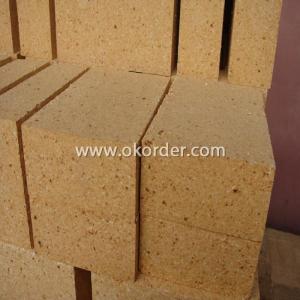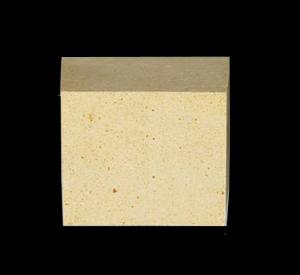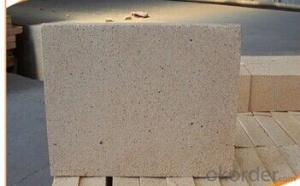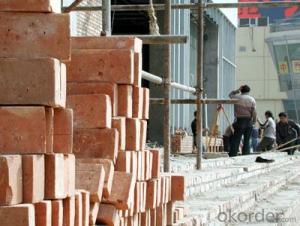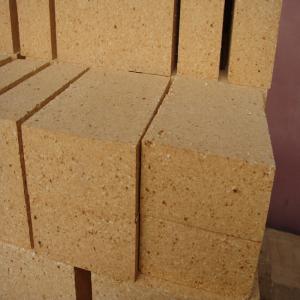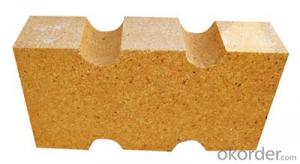Fireclay Brick - Low Porosity SG12
- Loading Port:
- China Main Port
- Payment Terms:
- TT or L/C
- Min Order Qty:
- 5 ton m.t
- Supply Capability:
- 1000 Tons Per Month m.t/month
OKorder Service Pledge
OKorder Financial Service
You Might Also Like
General Information of Low Porosity Fireclay Brick SG12
Our corporation produces a comprehensive range of Low Porosity Fireclay bricks, with 30% to 55% alumina content, all of these bricks exhibit excellent performance.
Our Low Porosity Fireclay bricks are the final result of blending excellent calcined flint clay and calcined bauxite, with cutting-edge technology, adding superfine powder, after mixing, drying, forming, in the high temperature shuttle kiln. We ensure you that the Fireclay Bricks made by us possess high quality standard and have gone through all the complicated quality control parameters. Their durability and strength adds life to the structure and they have the capacity of bearing high temperature.
Technical Data of Low Porosity Fireclay Brick SG12 | ||
Physical Properties: | ||
Refractoriness | ℃ | 1750 |
Permanent Linear Change(1400℃×2h)% | % | -0.1~0.05 |
Apparent Porosity, % | % | ≤12 |
Cold Crushing Strength | Mpa | ≥65 |
Refractoriness Under Load (T0.6) | ℃ | - |
Thermal Expansion at 1000℃, | % | - |
Density | g/cm3 | ≥2.35 |
Chemical Analysis: |
|
|
Al2O3 | % | ≥45 |
Fe2O3 | % | ≤1.2 |
Note: | ||
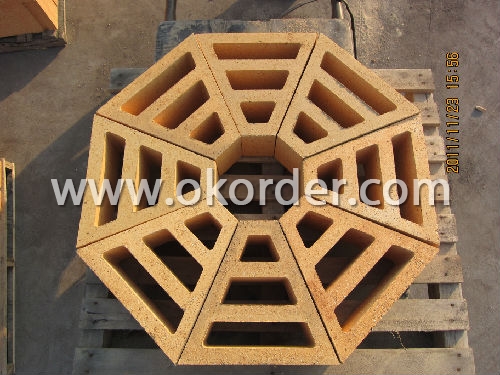
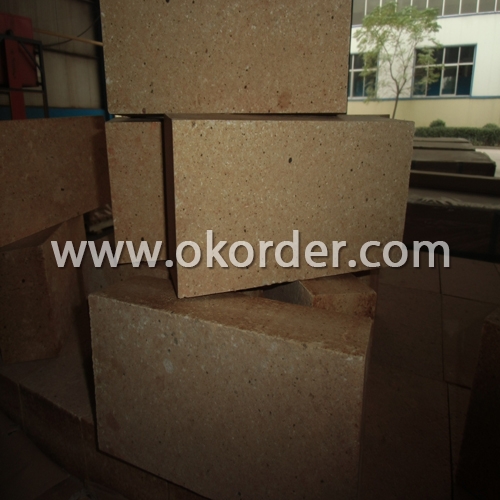
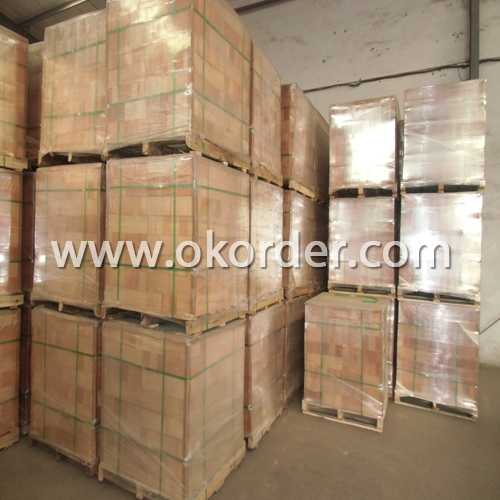
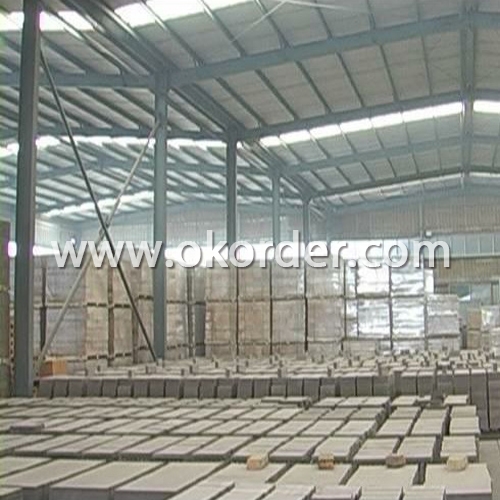
Feature of Low Porosity Fireclay Brick SG12
Resistant to thermal shock, abrasion, chemical attack
High ability for anti-abrasion during work
Low shrinkage degree under high temperature so as to maintaining integrity of the furnace lining
Low apparent porosity, and low Fe2O3 content to reduce the carbon deposit in the blowhole and avoid the bricks broken in case of expansion
Applications of Low Porosity Fireclay Brick SG12
Low Porosity Fireclay Brick SG12 is mainly used in glass furnace.
- Q: Why is the house made of refractory bricks not warm in winter
- Refractory bricks are not used in the house, but used in a large boiler inner
- Q: Is fireclay brick acidproof? Does clay brick anti corrosion when it's used to build chimney lining?
- Refractory bricks anti acid and alkali after high-temperature calcination, and anti-corrosion won't be a problem
- Q: Are there any good improvement measures for the always collapse of the previous vaulted tunnel kiln built by refractory bricks?
- Volume shrinkage, uneven shrinkage and expansion of part, long-term high-temperature processing crystal type changes, calcium and other substances forming the refractory brick is Magnesium Oxide. Also the temperature changes quickly, and belongs to the crystal compound, silicon aluminum, sealing material's selection should be pay attention to
- Q: How aluminium oxide becomes a entity from the the form of powder (such as a ball, a stone, or a refractory brick)?
- Just like the process of making steamed bun from flour. Ball milling ---in the auxiliary material to make the slurry --- suppress the body --- high temperature calcination
- Q: How many degrees of refractory brick if its surface turns red, how to test the temperature of refractory brick after it is burnt to red.
- Dark red? Bright red? Orange red? 400,1100 or 1500 probably
- Q: How many pieces of porous brick is equal to one ton?
- Refractory bricks are generally classified into two types, that is, shapeless refractory materials and shaped refractory materials. Shapeless refractory material: Also known as castable refractory, is hybrid power material composed of a variety of aggregate or a kind of aggregate and one or more kinds of the mixture of adhesive particles, it should be used evenly mixed with one or more kinds of the liquid, which has strong liquidity. Shaped refractory material: The general making of firebrick, there are standard rules for the shape, can also temporarily process according to need of building and cutting. The following are the specifications. fireclay bricks 230*114*65 each block 3.0 - 3.6 kg; special-shaped fireclay brick 230*65/55*114 each block 2.8 - 3.3 kg; the reason for the weight's ranges is that because the quality is different, in general, heavy density, good quality!
- Q: th choose of different refractory bricks in the rotary?kiln
- According to the characteristics of each belt, magnesium chromium brick. Take the most kiln foe example, the configuration of kiln refractory is not the same, the burning of the product is not the same. there are many kinds of rotary kiln. magnesia bricks are generally used in high temperature zone, anti-stripping alumina brick,silmo brick are used in temperate zone, clay brick is mainly used in low temperature zone. generally inlet and the outlet use corundum mullite, wear-resistant castable, spinel brick,etc. select brick of proper performance, but also take into account the economy
- Q: What matters should be noticed when using clay refractory bricks in a glass kiln?
- There are a variety of products for the production of shaped and unshaped refractory clay, such as blast furnace insulation and high alumina bricks. Brick products include refractory clay bricks, plastic materials for overload, refractory clay and high alumina casting materials, etc.. In the amorphous part, if to support the horizontal induction furnace and the straight induction furnace lining, such as refractory clay and high alumina plastic
- Q: What can be applied to the burned refractory brick to resist heat shock?
- Acidic refractory material use monox as the main component, among which cilica brick and clay brick are commonly used. Silica brick is silicious product containing monox more than 93%, whose raw materials include silica, waste silica brick scrap and etc. The acid resistance of slag erosion ability is good, and the softening temperature under a fixed load is high. The volume won't shrink after repeated burning, but even a slight expand; but it is vulnerable to the erosion of basic slag, and has low thermal shock resistance. The silica brick is mainly used for coke oven, glass melting furnace, acid hearth furnace and other thermal equipments. Clay brick uses refractory clay as the main raw material, containing 30% to 46% of aluminuum oxide, belong to weakly acidic refractories. It has good heat shock resistance and corrosion stability to acid slag, and it's widely used. Neutral refractory materials use aluminum oxides, chromium hemitrioxides or carbons as the main components. Corundum products containing more than 95% of alumina is a kind of high quality refractory material with wide application.
- Q: Can refractory bricks be used to pave roads or build a wall?
- Refractory bricks are used to build a house, no problem
Send your message to us
Fireclay Brick - Low Porosity SG12
- Loading Port:
- China Main Port
- Payment Terms:
- TT or L/C
- Min Order Qty:
- 5 ton m.t
- Supply Capability:
- 1000 Tons Per Month m.t/month
OKorder Service Pledge
OKorder Financial Service
Similar products
Hot products
Hot Searches
Related keywords
